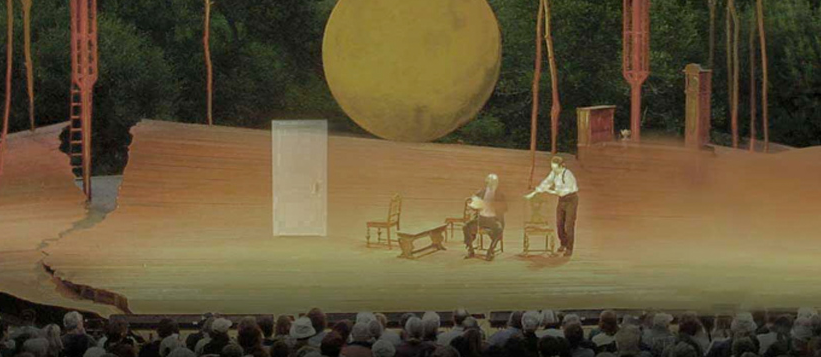As an actor, LeeAnn Dowd would print out a headshot and a copy of her resume every time she attended an audition. There were times when she’d print 100 copies of each. Whenever something changed, 100 more.
It didn’t seem like the most efficient way to spend time or resources, but that was the only way most theaters accepted casting materials. LeeAnn wished there was a way to streamline the casting process and make it electronic- for actors, and for the organizations organizing tons of headshots.
…
Today, LeeAnn’s role has transitioned from center stage to behind the scenes. She works as an Artistic Associate at the nonprofit California Shakespeare Theater (Cal Shakes).
Cal Shakes has been producing Shakespeare since 1974 and is now one of the largest regional theaters in the Bay Area. It’s well-known for attracting both Shakespeare aficionados and people looking for a fresh take on the classics.
LeeAnn’s role at Cal Shakes is a medley of managing casting, producing mainstage work, and supporting seasonal planning. Her schedule is busy and she needed a flexible data collection tool that would allow her to collect and store key information about the Bay Area’s versatile actor pool while cutting down on the burden of processing hundreds of headshots.
That’s when she found JotForm.
LeeAnn’s infatuation with Jotform was instant. She loved its ease, suite of features, and power to get things done.
With Jotform, LeeAnn can create forms in minutes by simply dragging and dropping elements in the form builder. She’s able to customize her forms and tailor them to her needs with colors, fonts, branding, and widgets.
“Jotform provides me with the versatility to meet all of my information collection needs.” –LeeAnn Dowd, Artistic Associate at Cal Shakes
A large reason LeeAnn enjoys using Jotform is for casting purposes. Each show requires actors with different skill sets, so with Jotform, LeeAnn can edit questions and make them relevant for the roles she needs to fill.
Some casting questions require multiple parts, especially if LeeAnn is looking for a specific skill, such as an intermediate level guitar player. For these types of questions, she uses conditional logic.
With conditional logic, follow-up questions only appear if a condition is met. For instance, questions for the guitar position might start with a simple “Do you play the guitar?” If an actor answers yes, then another question would appear asking what their skill level is.
The flip side is, if an actor answers, “no,” they will immediately go on to the next question and not be shown any follow-up questions. This feature further personalizes the form and helps actors save time on questions that aren’t relevant to them.
Once the application data is collected, LeeAnn can check submissions by logging into her Jotform account and reviewing them. She can easily vet candidates and export the applications into a PDF form, which can be emailed to anyone else involved in the hiring process.
Using Jotform is also affordable for Cal Shakes – plans are discounted 50% for nonprofits, so they can allocate resources to programs and community efforts instead of spending money on pricey software.
Thanks for sharing your story with us, Cal Shakes – that’s a wrap!
What do you use Jotform for? If you’re interested in us featuring your business in a blog or video, fill out our brief case study request form!














Send Comment: